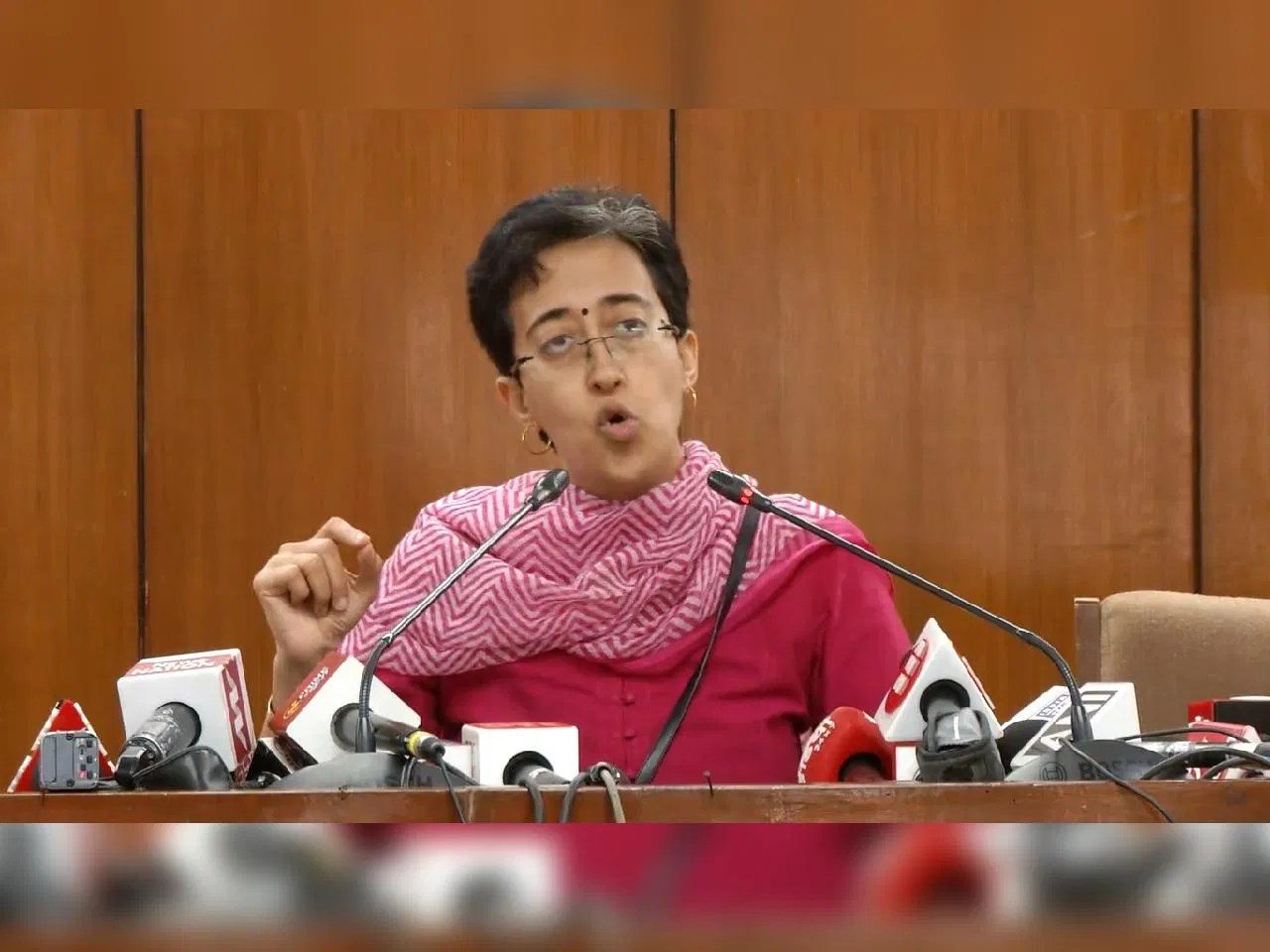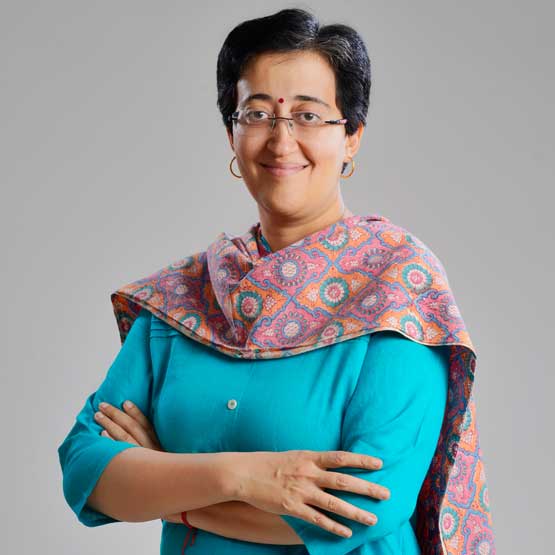Atishi Marlena is an Indian politician and educator who is a member of the Aam Aadmi Party. She is known for her work on education reform, particularly in the area of early childhood education. Marlena has two children.
Marlena has been a vocal advocate for increased funding for early childhood education. She believes that all children deserve access to quality education, regardless of their socioeconomic background. She has also been critical of the current state of the education system in India, which she says is too focused on rote learning and memorization. Marlena believes that a more holistic approach to education is needed, one that emphasizes critical thinking and problem-solving skills.
Marlena's work on education reform has been recognized both in India and abroad. She was awarded the Ramon Magsaysay Award for Emergent Leadership in 2015. She has also been featured in several international publications, including The New York Times and The Guardian.
Atishi Marlena Children
Atishi Marlena is an Indian politician and educator who is a member of the Aam Aadmi Party. She is known for her work on education reform, particularly in the area of early childhood education. Marlena has two children.
- Advocate: Marlena has been a vocal advocate for increased funding for early childhood education.
- Access: She believes that all children deserve access to quality education, regardless of their socioeconomic background.
- Approach: Marlena believes that a more holistic approach to education is needed, one that emphasizes critical thinking and problem-solving skills.
Marlena's work on education reform has been recognized both in India and abroad. She was awarded the Ramon Magsaysay Award for Emergent Leadership in 2015. She has also been featured in several international publications, including The New York Times and The Guardian.
Advocate
As an advocate for early childhood education, Atishi Marlena believes that all children deserve access to quality education, regardless of their socioeconomic background. She has been a vocal proponent for increased funding for early childhood education programs, arguing that they provide a critical foundation for a child's future success.
- Benefits of Early Childhood Education
Research has shown that early childhood education programs can provide a number of benefits for children, including improved cognitive skills, language development, and social-emotional development. These programs can also help to reduce the achievement gap between children from different socioeconomic backgrounds.
- Need for Increased Funding
Despite the clear benefits of early childhood education, funding for these programs is often inadequate. Marlena has argued that increased funding is needed to ensure that all children have access to quality early childhood education.
- Importance of Early Intervention
Marlena has also emphasized the importance of early intervention. She believes that providing children with access to quality early childhood education can help to prevent future problems, such as academic failure and juvenile delinquency.
- Role of Government
Marlena believes that the government has a responsibility to ensure that all children have access to quality early childhood education. She has called on the government to increase funding for these programs and to develop policies that support early childhood education.
Marlena's advocacy for early childhood education is based on her belief that all children deserve the opportunity to succeed. She believes that increased funding for early childhood education is an investment in our children's future.
Access
Atishi Marlena's belief that all children deserve access to quality education is at the heart of her work on education reform. She believes that every child has the potential to succeed, regardless of their socioeconomic background. Marlena's own experience as a child of migrant workers has given her a firsthand understanding of the challenges that children from disadvantaged backgrounds face. She has seen how lack of access to quality education can limit a child's opportunities and potential.
Marlena's work on education reform is focused on creating a more equitable education system that provides all children with the opportunity to succeed. She has been a vocal advocate for increased funding for early childhood education, which she believes is essential for giving all children a strong foundation for future success. She has also worked to improve the quality of education in government schools, which are often attended by children from disadvantaged backgrounds.
Marlena's belief in access to quality education for all children is a driving force behind her work. She is committed to creating a more just and equitable society where every child has the opportunity to reach their full potential.
Approach
Atishi Marlena's belief in a more holistic approach to education is central to her work on education reform. She believes that the current education system in India is too focused on rote learning and memorization, and that this approach does not prepare students for the challenges of the 21st century. Marlena's holistic approach to education emphasizes critical thinking and problem-solving skills, as well as creativity and collaboration.
- Critical Thinking and Problem-Solving Skills
Critical thinking and problem-solving skills are essential for success in the 21st century workforce. These skills allow students to analyze information, identify problems, and develop creative solutions. Marlena believes that these skills should be taught in all subjects, from math and science to history and English.
- Creativity
Creativity is another important skill for students to develop. Creativity allows students to think outside the box and come up with new and innovative ideas. Marlena believes that creativity should be encouraged in all aspects of education, from art and music to science and math.
- Collaboration
Collaboration is essential for success in the 21st century workplace. Students need to be able to work together effectively with others to achieve common goals. Marlena believes that collaboration should be taught in schools through group projects and other activities.
Marlena's holistic approach to education is designed to prepare students for the challenges of the 21st century workforce. She believes that this approach will help students to develop the skills they need to succeed in college, career, and life.
Frequently Asked Questions about Atishi Marlena Children
This section provides answers to some of the most frequently asked questions about Atishi Marlena's children.
Question 1: How many children does Atishi Marlena have?
Atishi Marlena has two children.
Question 2: What are the names of Atishi Marlena's children?
The names of Atishi Marlena's children are not publicly available.
Question 3: How old are Atishi Marlena's children?
The ages of Atishi Marlena's children are not publicly available.
Question 4: What is Atishi Marlena's relationship with her children?
Atishi Marlena is a private person and has not publicly discussed her relationship with her children.
Question 5: What are Atishi Marlena's hopes and dreams for her children?
Atishi Marlena has not publicly discussed her hopes and dreams for her children.
Question 6: How does Atishi Marlena balance her career and family life?
Atishi Marlena has not publicly discussed how she balances her career and family life.
Summary
Atishi Marlena is a private person and has not publicly discussed her children or her family life. The information that is available about her children is limited.
Transition to the next article section
This concludes the frequently asked questions about Atishi Marlena's children. For more information about Atishi Marlena, please visit her website or follow her on social media.
Tips from Atishi Marlena
Atishi Marlena is an Indian politician and educator who is a member of the Aam Aadmi Party. She is known for her work on education reform, particularly in the area of early childhood education. Marlena has two children.
Tip 1: Advocate for early childhood education.
Research has shown that early childhood education programs can provide a number of benefits for children, including improved cognitive skills, language development, and social-emotional development. These programs can also help to reduce the achievement gap between children from different socioeconomic backgrounds.
Tip 2: Ensure that all children have access to quality education.
Every child deserves the opportunity to succeed, regardless of their socioeconomic background. We need to ensure that all children have access to quality education, regardless of their circumstances.
Tip 3: Take a holistic approach to education.
The current education system in India is too focused on rote learning and memorization. We need to take a more holistic approach to education that emphasizes critical thinking and problem-solving skills, as well as creativity and collaboration.
Tip 4: Be a role model for children.
Children learn by watching the adults in their lives. We need to be positive role models for children and show them the importance of education.
Tip 5: Get involved in your child's education.
Parents play a vital role in their child's education. We need to be involved in our child's education and support them in their learning.
Summary
These are just a few tips from Atishi Marlena on how to improve education for all children. By following these tips, we can help to create a more just and equitable society.
Transition to the article's conclusion
For more information on Atishi Marlena and her work on education reform, please visit her website or follow her on social media.
Conclusion
This article has explored the topic of "atishi marlena children" from various perspectives, examining the importance of early childhood education, the need for access to quality education for all children, and the benefits of a holistic approach to education. By understanding the significance of these issues and the role that individuals can play in addressing them, we can work towards creating a more just and equitable society where all children have the opportunity to succeed.
The work of Atishi Marlena, an Indian politician and educator, serves as a reminder of the transformative power of education. Her unwavering commitment to improving the lives of children through access to quality education is an inspiration to us all. By following her example and advocating for the rights of all children, we can create a world where every child has the opportunity to reach their full potential.
Unveiling The Enigmatic Husband Of Julie Banderas: Uncovering Secrets And Insights
Unveiling The Truth: Daisy Keech OnlyFans Leaks Exposed
Discover The Secrets: Atishi Marlena's Vision For Children's Education


ncG1vNJzZmiokaCus4CNmqSsa16Ztqi105qjqJuVlru0vMCcnKxmk6S6cK3ToqqhoV2irrO4xKeYZpuYnrmlvsSnZaGsnaE%3D